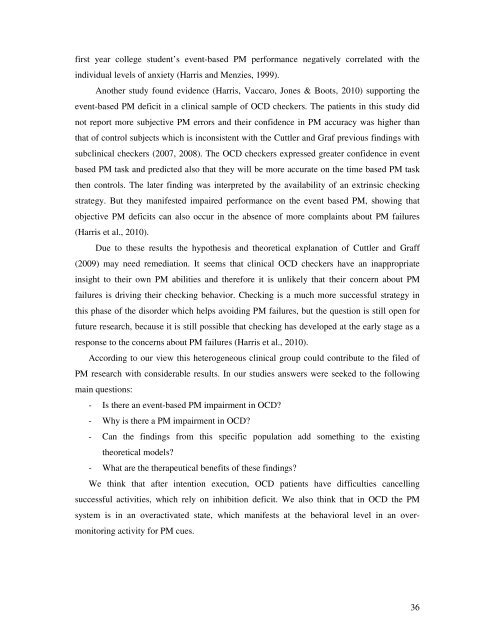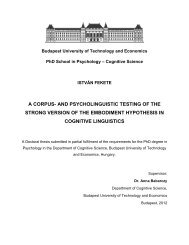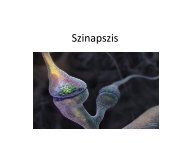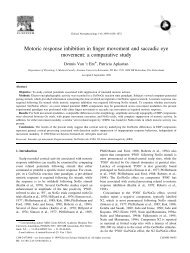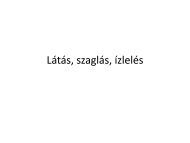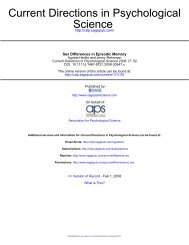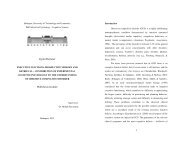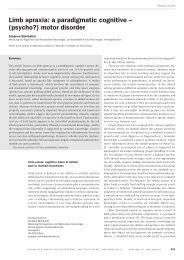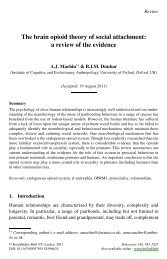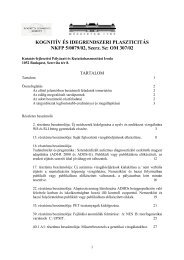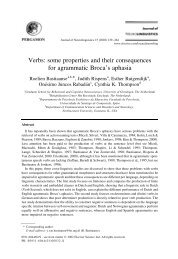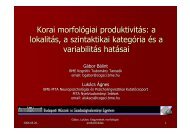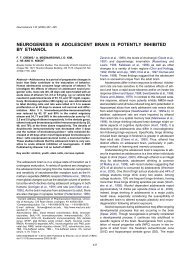Gyula Demeter
Gyula Demeter
Gyula Demeter
Create successful ePaper yourself
Turn your PDF publications into a flip-book with our unique Google optimized e-Paper software.
first year college student’s event-based PM performance negatively correlated with the<br />
individual levels of anxiety (Harris and Menzies, 1999).<br />
Another study found evidence (Harris, Vaccaro, Jones & Boots, 2010) supporting the<br />
event-based PM deficit in a clinical sample of OCD checkers. The patients in this study did<br />
not report more subjective PM errors and their confidence in PM accuracy was higher than<br />
that of control subjects which is inconsistent with the Cuttler and Graf previous findings with<br />
subclinical checkers (2007, 2008). The OCD checkers expressed greater confidence in event<br />
based PM task and predicted also that they will be more accurate on the time based PM task<br />
then controls. The later finding was interpreted by the availability of an extrinsic checking<br />
strategy. But they manifested impaired performance on the event based PM, showing that<br />
objective PM deficits can also occur in the absence of more complaints about PM failures<br />
(Harris et al., 2010).<br />
Due to these results the hypothesis and theoretical explanation of Cuttler and Graff<br />
(2009) may need remediation. It seems that clinical OCD checkers have an inappropriate<br />
insight to their own PM abilities and therefore it is unlikely that their concern about PM<br />
failures is driving their checking behavior. Checking is a much more successful strategy in<br />
this phase of the disorder which helps avoiding PM failures, but the question is still open for<br />
future research, because it is still possible that checking has developed at the early stage as a<br />
response to the concerns about PM failures (Harris et al., 2010).<br />
According to our view this heterogeneous clinical group could contribute to the filed of<br />
PM research with considerable results. In our studies answers were seeked to the following<br />
main questions:<br />
- Is there an event-based PM impairment in OCD?<br />
- Why is there a PM impairment in OCD?<br />
- Can the findings from this specific population add something to the existing<br />
theoretical models?<br />
- What are the therapeutical benefits of these findings?<br />
We think that after intention execution, OCD patients have difficulties cancelling<br />
successful activities, which rely on inhibition deficit. We also think that in OCD the PM<br />
system is in an overactivated state, which manifests at the behavioral level in an over-<br />
monitoring activity for PM cues.<br />
36


